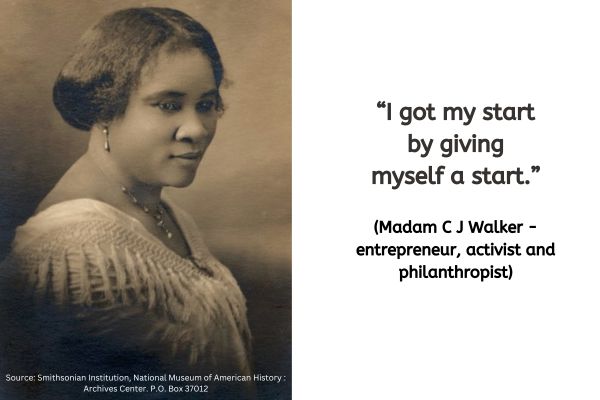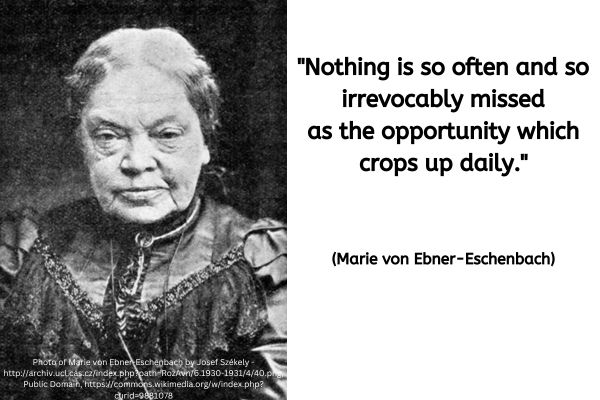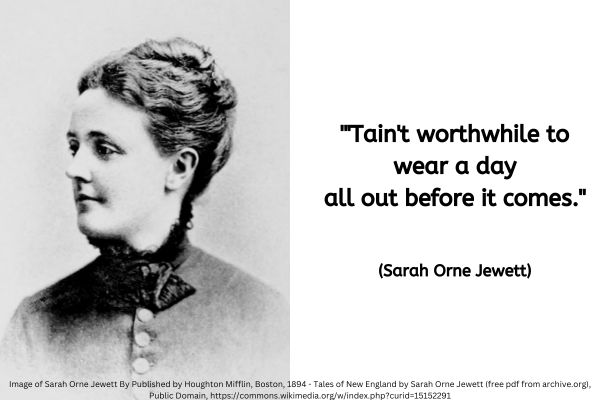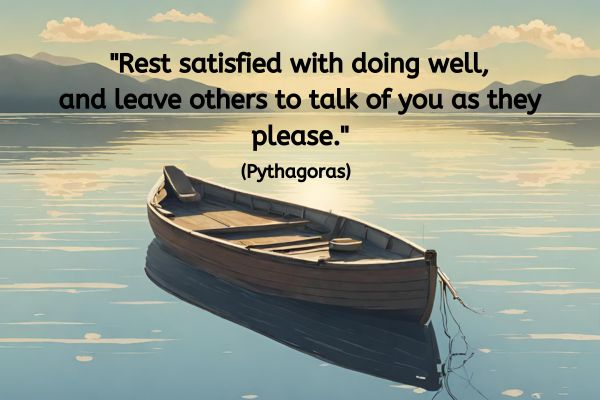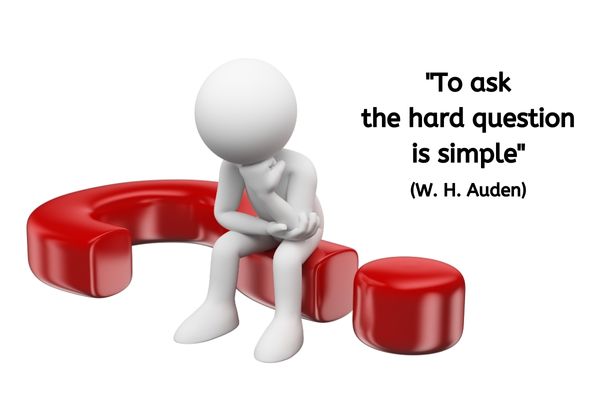Reflecting on Anticipation: Navigating Expectations in Coaching and Life
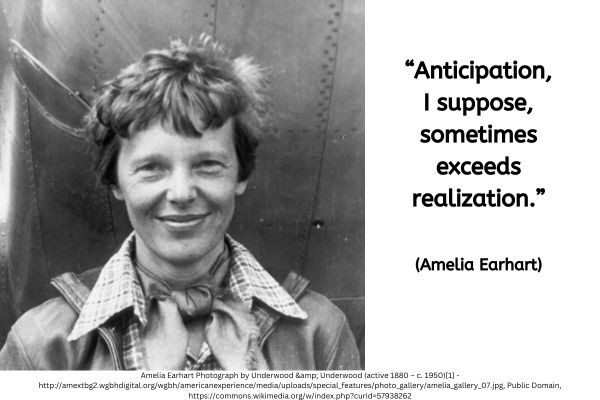
It’s Thursday! Today’s quote is:
“Anticipation, I suppose, sometimes exceeds realization.” (Amelia Earhart)
This quote first prompted me to reflect on managing expectations and anticipation, particularly within the context of coaching relationships. Over my years of coaching experience, I’ve observed that certain aspects can hinder our ability to fully engage and benefit from our time together. Speaking to other coaches it seems that we often notice a common theme that can trip our clients up. It’s not the same thing for every coach and their clients but there’s usually something that we can take action to minimise from the start.
For example, one common challenge I found when working with coaches, especially those new to coaching, is that they could sometimes become overly preoccupied with analyzing the reasons behind specific questions rather than focusing on their own responses. It was completly understandable as many of them credited feeling a lack of confidence down to thinking that they needed a better understanding of questions and what to ask when. etc
Recognizing this tendency, I’ve adopted a proactive approach to address it. Before starting our first session together, I usually initiate a conversation with clients, about how to get the best from our time together. It’s at that stage I set the expectation that if I do revisit certain questions it doesn’t imply a lack of preparation or doubt in their initial answers. Instead, it’s an acknowledgment of the dynamic nature of coaching conversations and the potential for transformative insights to emerge in unexpected moments. By setting this expectation upfront, clients with limited coaching experience can shift their focus from overanalyzing to simply engaging with the questions in the present moment.
This proactive approach with a different set up meant that anticipation and expectation was managed. It is now not something that often comes up as something that gets in the way of our coaching clients. I’ve heard other coaches have similar conversations about it being OK to take a moment to answer a question – there’s no need to rush if it’s soemthing a client has never considered before. So if there’s a common trend you see with many of your clients – is it something that would bennefit from having a conversation about before you start?
Reflecting on the interplay between anticipation and realization also led me to explore the broader implications of our thought patterns on our present moment experiences. In the realm of coaching and beyond, our subjective reality is profoundly influenced by the quality of our thoughts in any given moment. By recognizing the transient nature of thought and its direct impact on our perceptions, we gain the capacity to navigate life’s uncertainties with greater clarity and resilience.
Consider, for instance, the common scenario of anticipating future outcomes. When we become overly fixated on hypothetical scenarios or expectations, we risk diluting our present experience with unnecessary worry or anticipation. Instead, by cultivating mindfulness and embracing the inherent wisdom of the present moment, we can navigate uncertainty with grace and equanimity.
Furthermore, acknowledging the role of thought in shaping our experiences opens the door to a deeper understanding of resilience and well-being. Rather than attributing our emotional state solely to external circumstances, we recognize that our inner resilience stems from our innate capacity to navigate the ebb and flow of life’s challenges with grace and resilience.
In conclusion, Amelia Earhart’s timeless quote serves as a poignant reminder of the intricate relationship between anticipation and realization. By embracing the fluidity of the present moment and cultivating a deeper understanding of our thought patterns, we can navigate life’s uncertainties with clarity, resilience, and wisdom.
About Jen Waller

Jen Waller is on a mission to support, nurture and encourage coaching skills and talents from non-coach to coach and beyond.
As an experienced coach and trainer Jen is happy to utilise all skills at her disposal to assist clients from getting out of their own way and making a difference in the world with their coaching. Find out more about the support Jen offers here.
